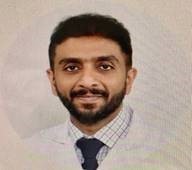
Surgical critical care is a rapidly growing sub-specialty of Critical Care Medicine in Saudi Arabia. In some areas of the world, it has a separate stream that is distinct from Medical and Anesthesia Critical Care. Surgical Critical Care deals with complex surgical and medical issues in critically ill surgical patients. It deals with life-threatening or potentially life-threatening surgical conditions. These include Trauma, Acute Care and Transplant patients. The care is also extended to patients in other surgical subspecialties, such as Vascular Surgery, Thoracic Surgery, Plastic Surgery, Orthopedic Surgery, Urology, Otolaryngology and Obstetrics and Gynecological related surgeries. In this proposal, we will discuss the need for a Surgical Critical Care chapter, Mission and Vision, its influence on the future of Education and Training and its future.
A career in Surgical Critical Care can be obtained after Residency in General Surgery and a Fellowship in Critical Care. The Fellowship can be inclusive to Medical and Surgical while it also could be dedicated to surgical patients with high volume of operative trauma and burn. In Europe, critical care can be achieved through its own residency. The number of General Surgeons with Critical Care Training is increasing constantly as the interest in the field is increasing simultaneously. There is quite a good mixture of critical care surgeons with different backgrounds currently exists in different areas of the country. The Saudi Critical Care Society is a well-established society with multiple chapters, but a chapter in Surgical Critical Care does not exist. There are other surgical societies, like Saudi Trauma Association and The Saudi General Surgery Society. Members of these societies may or may not have critical care training. In the past few years, The Saudi Commission of Health Specialties approved a Residency in Critical Care Medicine which is underway and the first batch is about to graduate. Besides, the country is undergoing transformation that in line with the 2030 vision and the health care system is a major part of that.
Having the chapter under the umbrella of the society, will help in many areas. It can help to open more opportunities for future graduates that might be interested in pursuing a career in Surgical Critical Care. As surgical diseases in the ICU, including Trauma and Transplant, are major health-care burden, there is a tremendous need for Critical Care Surgeons with advanced knowledge and skills to provide comprehensive care to critically ill patients. These must possess a comprehensive understanding of the relationship between the surgical critical illness and the surgical procedure. This can be achieved by enhancing training, education, and research. The chapter will build a collaborative platform with other chapters within the society and other societies nationally and internationally.
Being leaders in Surgical Critical Care in the middle East and in the Gulf region.
To improve the care of critically ill patients after sustaining a Trauma, Emergency or elective surgical procedure and Transplant. We are dedicated in providing high-quality and evidence - based care to our patients as well as improving Training and Education in these areas.
The Surgical Critical Care Chapter will be responsible for the Surgical Critical Care Fellowship. It could be after the current Saudi Board of Critical Care Medicine, or in Collaboration with Trauma and Acute Care Fellowship that is governed by King Saud University. This Training Fellowship will entail training in managing surgical patients after having surgery, Trauma and Transplant. Details of this fellowship will follow, after approval of this chapter.
The chapter will host many training courses throughout the year. Many of them will be simulation-based. The courses can be held in different areas of the country to insure participation.
The chapter will connect high-caliber researchers from different institutions and will start a research network under the umbrella of the Saudi Critical Care Society. Research can include observational studies based in the current data and in the future will include experimental trials. The chapter will collaboratively write guidelines and protocols that are eligible for publication in peer-reviewed journals.
Our chapter will have a consistent presence in the annual meeting of the Saudi Critical Care Society. Our members will be ready to present our work in national and international meetings. The chapter will use social media for advertisement and dissemination of our work.
The chapter will collaborate nationally with the Saudi Trauma Association (STA) and Saudi General Surgery Society, and internationally with the Trauma Association of Canada (TAC) and American Association for the Surgery in Trauma (AAST).
The chapter will plan and manage the revenue generating initiatives and projects, such as courses and conferences.
The chapter will serve as an advisory platform and provide consultation services for Strategic planning and operation (execution) with Government & private sectors in all perspectives, such as Teaching, Education, Research, and direct patient care including patient safety.
The chapter will collaborate with accreditation buddies to help in auditing and the accreditation process through the best available evidence.
The chapter will be involved immensely in the community to conduct workshops and meeting and provide volunteer services during Hajj season in Makkah and Medina. Advisory /operation /awareness.

Dr. Bawazeer is a healthcare consultant with more than 10 years of experience in critical care and health care management.
Currently, Dr. Bawazeer is a Consultant in Trauma and Critical Care Surgery as well as the Director of the Surgical Intensive Care Unit at King Faisal Specialist Hospital & Research Center, Riyadh, Saudi Arabia.
During his career in critical care, he was involved in clinical and leadership research. He published more than 10 studies in Prestigious Science Journals.
Dr. Bawazeer has a particular interest in Education and Training and is a member of many international and local regulatory bodies and societies.
References: